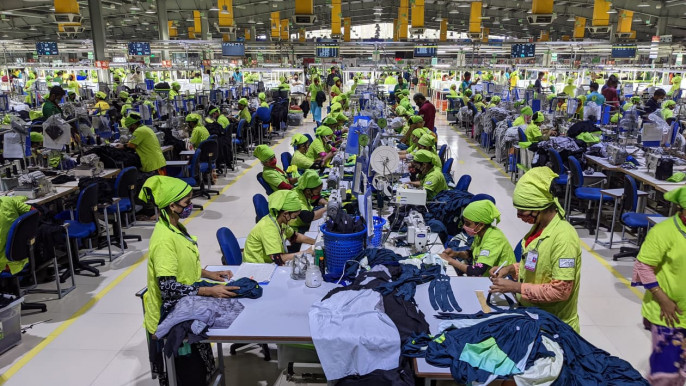Workers for incorporating the minimum wage policy into the national policy
Bangladesh is developing its first National Wage Policy to set standards for determining wages of all workers, including those in agriculture and transport sectors, domestic service, and the informal sector, which are currently not covered by the Minimum Wage Board.
At present, 44 sectors are covered by the Minimum Wage Board in the country.
When the national policy is formulated, wages must be determined by considering inflation, family expenses, and organisational capacity.

The labour leaders involved in shaping the policy believe that it will provide an opportunity to enhance the wages of workers in both the formal and informal sectors who are currently either overlooked or receive inadequate pay.
According to relevant sources, the Ministry of Labour and Employment initiated the development of the National Wage Policy some six months ago. Following numerous meetings, the ministry has subsequently drafted its proposal.
However, the labour representatives have yet to submit their own draft proposal.
Chowdhury Ashiqul Alam, secretary-general of the Bangladesh Noujan Sramik Federation and a committee member responsible for the National Wage Policy, established by the Ministry of Labour and Employment, told TBS, “We are in the process of drafting a proposal on behalf of the workers, and we will be submitting this draft soon.
“We will try to incorporate the minimum wage policy into the National Wage Policy and guarantee that workers receive a wage sufficient for their livelihood.”
Explaining the potential benefits for workers if the minimum wage policy is incorporated, Ashiqul said, “Currently, in the absence of this policy, the minimum wage board sets different wage rates for various sectors, sometimes overlooking which sectors should have a lower minimum wage. However, with a minimum wage policy in place, wages would be determined in accordance with it, and no sector would be allowed to establish wages below the prescribed minimum wage.
“As a result, there will be some flexibility in terms of workers’ wages.”
Professor Sayema Haque Bidisha, research director of the South Asian Network on Economic Modelling (Sanem), sees this initiative as positive.
“Other countries have this type of policy, taking into account the experience, education, inflation, and demand of the workers. We were supposed to have it; it’s rather unusual that we haven’t had it for so long,” she told TBS.
“This policy or minimum wage should not be kept under the Ministry of Labour but should be with an independent commission and should be decided by the representatives of all parties there,” she added.
According to several members of the policy formulation committee, the draft will be prepared by this November, and it can be finalised by next year after taking the opinions of the parties concerned.
Currently, there is no wage policy in Bangladesh. According to the latest Labour Force Survey 2017 data released by the Bangladesh Bureau of Statistics, the number of formal and informal sector workers in the country is over six crore. Of these, 85% are in the informal sector, for which there is no government wage structure.
Besides, there are about 1 crore workers in the institutional sector. Wages are fixed by the Minimum Wages Board under the Ministry of Labour for workers in 44 sectors, including those in the institutional sector.
There are some sectors in which no new wages have been fixed since 1987. According to the information published by the Minimum Wage Board, the wages of petrol pump workers have not been fixed since 1987, and the wages are only Tk792 per month.
However, an official of the Minimum Wage Board, on condition of anonymity, told TBS that the work of determining the new wages of 15 sectors, including the discussed sector, is currently underway.
Minimum Wage Board secretary and member of the committee for national wage policy Raisa Afroz told TBS, “If the new policy is implemented, some inconsistencies in wage determination will be reduced.”
She said the ministry has prepared a draft to this end.
















